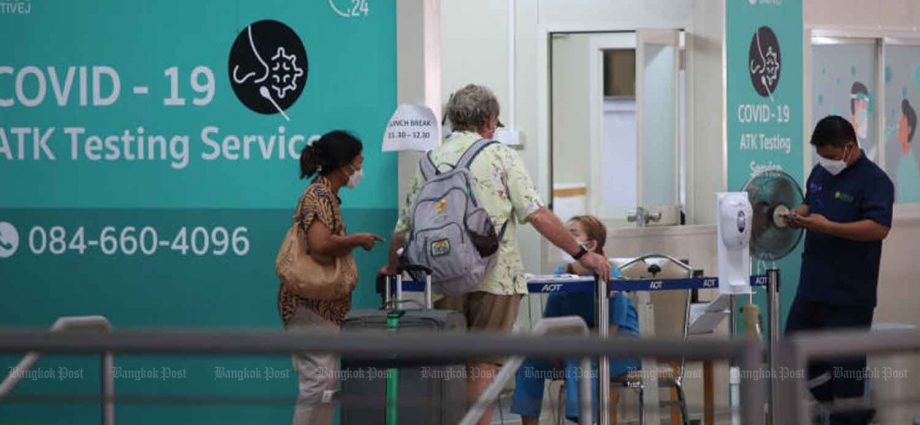
Visitors will not be required to show their Covid-19 vaccination or test certificates and infected people with mild or no symptoms will not need to enter isolation from Oct 1 .
The changes were announced by Public Health Minister Anutin Charnvirakul on Thursday after a meeting of the National Communicable Disease Committee on Wednesday.
He said the committee resolved to redefine Covid-19 as a communicable infection under surveillance, and relevant measures would change accordingly for visitors, locals and infected people.
From Oct 1 visitors wouldn’t normally need to show the results of antigen tests for Covid-19, or any evidence of Covid-19 vaccination.
Infected people who had no or mild symptoms would not be isolated, but would be advised to strictly follow measures to simply help control the disease – including the use of face masks, social distancing and hand washing for five days.
Mr Anutin said that the National Communicable Disease Committee also agreed to redefine Covid-19 as a communicable disease under surveillance, instead of as a dangerous communicable illness, from Oct 1 to September next year.
Dr Sophon Iamsirithaworn, deputy director-general of the Department of Disease Control, said on Thursday that disease control measures would be relaxed because Covid-19 symptoms were currently not severe and were just like those of a common cold.
Infected people were advised to take strict precautions to prevent illness transmission for five days, especially by wearing face masks, but they wouldn’t normally have to be isolated, he said.
Infected people may need to follow different disease control policies at their workplaces, Dr Sophon said.
Infected people who worked closely with elderly people should steer clear of them, and other vulnerable people, he said.
After following disease control measures strictly for five days, Covid-19 cases would not need to take an antigen test, he said.

